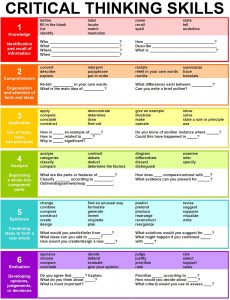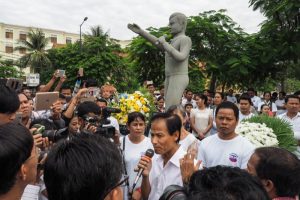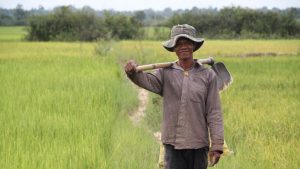Political Paradigm of Pragmatism from the Khmer Youth part 97
This part (97), Mr. Sophan analysed on shortcoming of “critical thinking” among Cambodian citizens especially public leaders, educators, and general citizens.

Up to today, the pure democracy has not existed in this world. Up to today, the pure communism has not existed in this world. The middle path engagement has been visible everywhere. But those countries that are moving away from this middle path are practically fragile states or failed states respectively. Our well-known ancient political philosophers such as Plato said “you should not honor men more than truth”, or legendary Socrates who accepted to die than giving up his “true word”, or Lord Buddha who advocated for “Dhamma-thepady Democracy or Dhamma Supremacy Democracy” since thousand centuries ago, have lighted up till today. Dhamma Supremacy Democracy literally means “rule of laws democracy”. In practice, Bhikkhu monks used major consensus to make decision-making upon well-adopted Vinaya or rule of laws. At least, there are three levels of “rule of laws” taught by Lord Buddha: the conventional truth or man-made rule of laws (Vinaya or disciplinary discourse), natural truth of rule of laws (Dhamma or natural truth of long discourse”, and ultimate truth or ultimate rule of laws (Abbhidhamma or ultimate truth of metaphysic discourse”. Buddha also addressed the three majority policy such as self supremacy (Atta-thepady), populace supremacy (Loka-thepady), and Dhamma supremacy (Dhamma-thepady) which he concluded that all those supremacy are beneficial by resembling within the line of “rule of laws” or Dhamma, not a single identity.
Look at Cambodia, there seems no core value of “rule of laws” have been embedded. Many civilized nations have evolved their political arguments into monarchy, republican, democrat, or conservative etc. to maximize the interest of their nations. But Cambodia has likely evolved into more self-inflicting political argument than those progressive political embeddedness. While Cambodia has adopted conventional man-made truth (rule of laws) called “Constitution” in 1993, none of the powerful leader has ever dedicated himself to build this truth for this country. As a result, the embeddedness of disarrayed citizenship has been omnipresent displayed. For instance, when two Cambodians are facing road-accident argumentation with each other, the two shall accuse each other to seek “wrong” and “right” rarely upholding principle to depend on nation-state’s rule of laws. And for the powerful leader(s), they will use “rule by laws” to accuse or punish individuals or “inferiors” at their helm to legitimize righteousness like what Khmer saying popularly coined “not kick the ball but the player”. Constitution has been born by the attempt of “critical thinking” but the Constitutional Council, the three branches of government, and the citizens in general, are running out their inner “critical thinking”.



